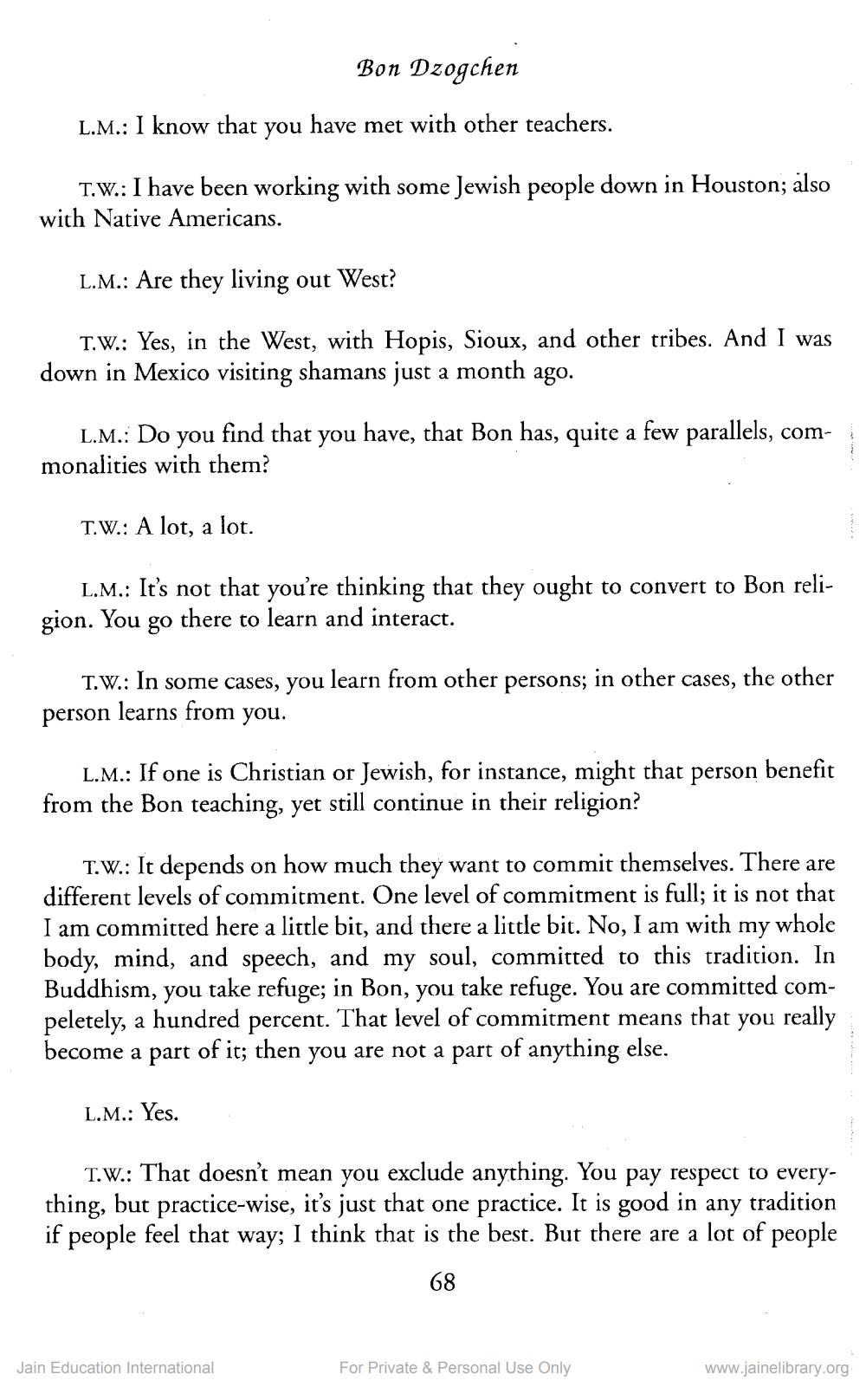________________
Bon Dzogchen L.M.: I know that you have met with other teachers.
T.W.: I have been working with some Jewish people down in Houston; also with Native Americans.
L.M.: Are they living out West?
T.W.: Yes, in the West, with Hopis, Sioux, and other tribes. And I was down in Mexico visiting shamans just a month ago.
L.M.: Do you find that you have, that Bon has, quite a few parallels, commonalities with them?
T.W.: A lot, a lot.
L.M.: It's not that you're thinking that they ought to convert to Bon religion. You go there to learn and interact.
T.W.: In some cases, you learn from other persons; in other cases, the other person learns from you.
L.M.: If one is Christian or Jewish, for instance, might that person benefit from the Bon teaching, yet still continue in their religion?
T.W.: It depends on how much they want to commit themselves. There are different levels of commitment. One level of commitment is full; it is not that I am committed here a little bit, and there a little bit. No, I am with my whole body, mind, and speech, and my soul, committed to this tradition. In Buddhism, you take refuge; in Bon, you take refuge. You are committed compeletely, a hundred percent. That level of commitment means that you really become a part of it; then you are not a part of anything else.
L.M.: Yes.
T.W.: That doesn't mean you exclude anything. You pay respect to everything, but practice-wise, it's just that one practice. It is good in any tradition if people feel that way; I think that is the best. But there are a lot of people
68
Jain Education International
For Private & Personal Use Only
www.jainelibrary.org




